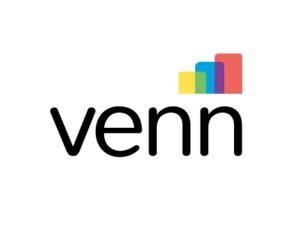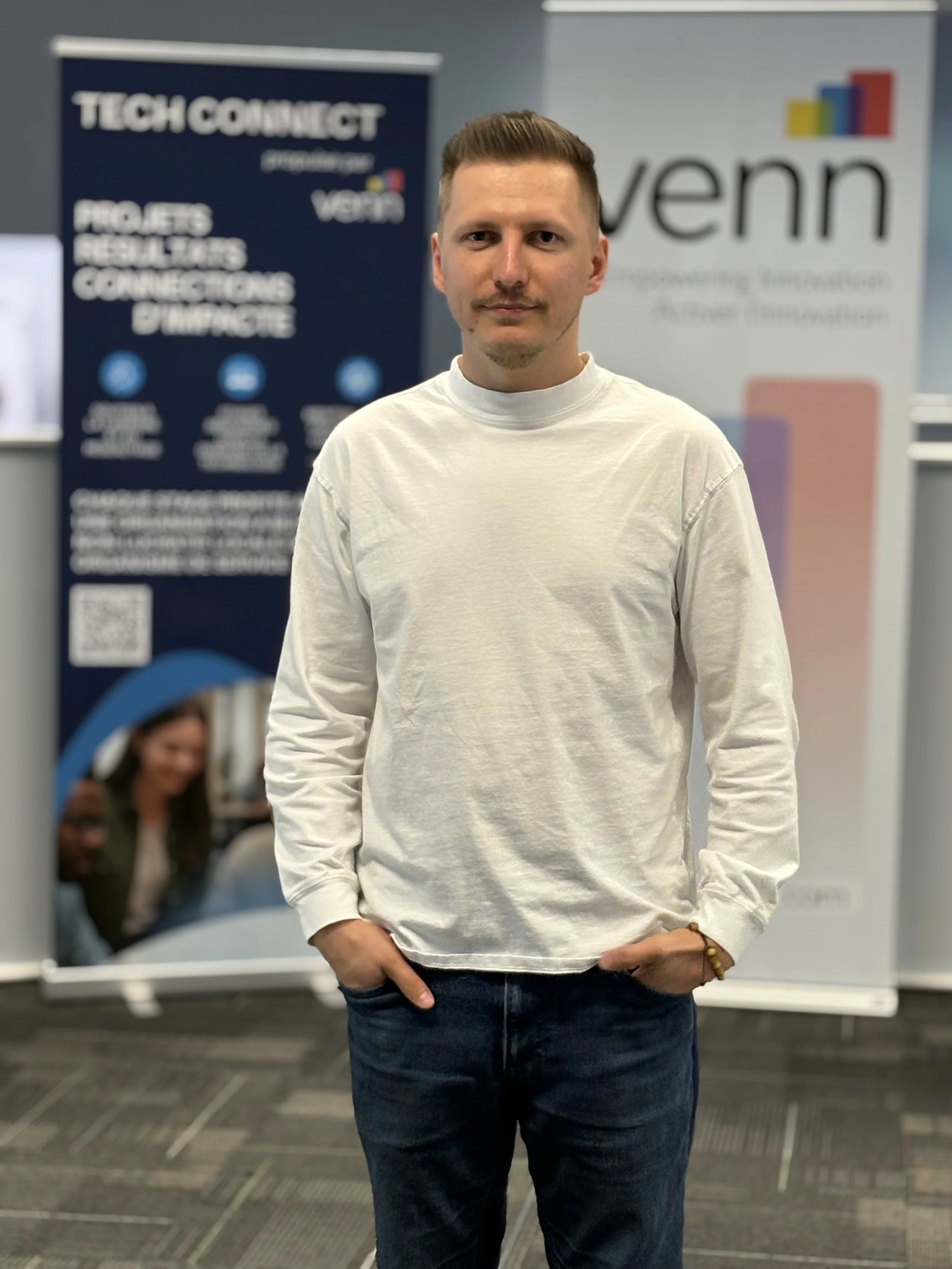Fatai Bello
Fatai Bello, Tech Connect Graduate
In December 2024, Fatai moved to Moncton from Nigeria with his family, bringing over 20 years of IT leadership experience, including senior roles at IBM and Upstream. Through Tech Connect, he quickly adapted to Canadian workplace culture, stepped into leadership on projects, and built the confidence to navigate the job market.
Today, he’s at TD Bank and still volunteers his expertise on weekends to support our community IT projects.
He reflects:
“Tech Connect has been instrumental in helping me build a solid foundation for gaining Canadian work experience and understanding the professional environment in Canada.”
Vitalii Petrenko
Vitalii Petrenko, Tech Connect Graduate
In January 2025, Vitalii arrived in Moncton from Ukraine with over a decade of data engineering experience. At Tech Connect, he transformed the Family Resource Centre project—moving systems from paper to digital, applying privacy standards, and mentoring other developers. Along the way, he refined his résumé, sharpened interview skills, and gained confidence in Canadian workplace norms.
Before finishing the program, he accepted a role as Senior Data Engineer with Bciti Inc., exactly the career path he envisioned when moving here.
Vitalii shared:
“Tech Connect upgraded my résumé, sharpened my interview skills, and taught me Canadian workplace norms. Even better, it offers the full infrastructure you need to grow—constant interaction, training resources, and real project work.”
Both graduates are now thriving in their careers while continuing to give back to our community.
This is the purpose of Tech Connect: Skilled newcomers. Real opportunities. A clear path forward.
March 28, 2024
VENN INNOVATION GARAGE PROGRAM PROFILE: Atlantic Memory Clinic
A TECH STARTUP FOR THE AGED
Atlantic Memory Clinic develops innovative tool to help diagnose dementia
When Professor Sarah Pakzad first came to Moncton, NB from Toulouse, France twenty years ago, she did not plan to become a tech entrepreneur.
“I arrived in Moncton for a short-term teaching assignment at the Université and I’m still here today,” sats the clinical neuro psychologist, who continues to teach at the Université de Moncton.
Professor Pakzad is now on the brink of commercializing a comprehensive new tool which can promote early diagnosis of dementia and be used in Canada and around the world.
Her initiative, called the Neurocognitive Frailty Index, or NFI for short, has been developed into a mobile app that can help identify patients who may be at risk of developing dementia.
The mobile app takes in basic patient information (age, gender, education, income level, residential situation, etc.), then asks questions that measure physical, mental and cognitive variables. The entire process can take as little as ten minutes (results may require another session twenty minutes).
Once all information is entered, the mobile app immediately produces the results in a PDF document, showing the patient’s cognitive abilities which helps health professionals better predict the risk of dementia and if a referral to a specialist or additional treatment is needed.
The NFI has been tested, and recommended by local neurologists and neuro psychologists who are eager to begin using it, and the app has drawn serious interest from the healthcare system in France.
How important is this innovative tool? “Right now the global population is facing a dementia and aging tsunami,” states Professor Pakzad. “Our healthcare systems are in danger of being overwhelmed by this illness and early detection can help the system deal with these patients in a timely way. That is why we developed the NFI.”
The road to a fully developed NFI mobile app took Professor Pakzad years of research and study. It started when she began volunteering at a local hospital as a way to augment her career development. She soon recognized the issue of rising cases of dementia. “Back in 2004 we were seeing the beginnings of the Baby Boom generation developing this condition and as we know, they comprise a large part of our population.”
She decided to study this condition and began her research not only with healthcare professionals but with the general population as well. “At the beginning, we sent hundreds of letters to physicians and talked to almost 800 people over 50 years of age who lived in nursing homes and independently, in rural and urban areas, every six months - three times in total.” Sarah admits that it wasn’t too hard to get people to participate – she offered them a $20 gift card for every visit.
That research prompted an idea for an accessible, quick and reliable diagnostic tool and Professor Pakzad developed the first version of the NFI in 2017. It draws on a database of at least 25,000 patients over 50 years of age and Professor Pakzad has partnered with Alzheimer’s Society of Canada as part of the Canadian Consortium on Neurodegeneration in Aging.
While COVID may have slowed down her project, it didn’t dampen her passion for bringing this unique tool to the healthcare system.
Today, the NFI mobile app has been tested to more than 90% accuracy, can help rule out illnesses that mimic dementia such as depression, has been peer reviewed and published in the Journal of Frailty and Aging (2021), an international publication.
Professor Pakzad approached Venn Innovation’s Garage Program last year when she realized she was ready to make her vision of an early diagnostic tool a reality. “I heard of Venn Innovation at the Université and came to the program for help on the next steps of getting this tool into the hands of healthcare professionals,” she says. “We’ve been meeting regularly and I have received guidance to help the process move along. I’m glad to be part of the program.”
Venn Innovation helps tech startups develop innovative ideas and enter the marketplace to change our world!
Have an innovative tech idea? Contact Aïssa Azzouzi, Manager of Startup Incubation Services at Venn Innovation.





